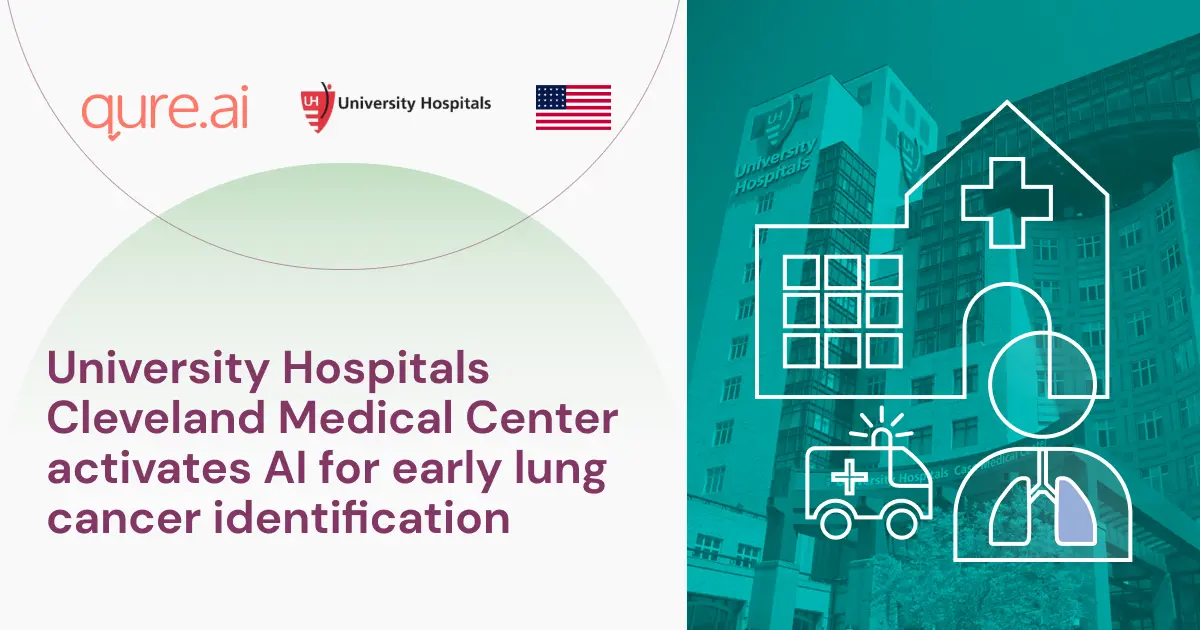- ‘Second set of eyes’ aims to help physicians find small pulmonary nodules
Back
New York, April 2, 2025: University Hospitals Cleveland Medical Center (UH) has announced a groundbreaking collaboration with global healthcare Artificial Intelligence (AI) innovator Qure.ai to deploy chest X-ray AI supporting earlier identification of lung cancers.
The FDA cleared chest X-ray AI solution qXR-LN will act as a second read, to be compared to the radiologists’ read of patient chest X-rays for any suspicious lung nodules. This will also provide evidence for future AI research.
“Lung cancer remains the leading cause of cancer-related deaths in the United States. To improve early diagnosis and survival rates, current guidelines recommend low-dose CT (LDCT) lung cancer screening as the standard of care for high-risk individuals, such as smokers and former smokers. However, despite its proven benefits, CT screening uptake remains alarmingly low nationally — out of 100 eligible individuals, only about 16 actually undergo screening,” states Amit Gupta, MD, Division Chief of Cardiothoracic Imaging and Modality Director of Diagnostic Radiography at University Hospitals Cleveland Medical Center.
“One way to enhance lung cancer detection is by identifying early-stage lung nodules and cancers incidentally when patients undergo chest X-rays for other medical reasons during hospital admissions,” explains Dr. Gupta.
However, detecting pulmonary nodules on plain X-rays remains a significant challenge, as these subtle findings can be easily overlooked. “This not only poses a substantial burden but also impacts patient care,” he continues.
To address this issue, University Hospitals Cleveland Medical Center is conducting a clinical trial to further investigate the efficacy of the qXR AI algorithm, an artificial intelligence tool designed to enhance the detection of pulmonary nodules on chest X-rays, by comparing its ability to detect pulmonary nodules to a radiologist’s interpretation of those same chest X-rays.
“AI serves as an additional set of eyes for radiologists, enhancing detection by flagging lung nodules that may require further evaluation. This AI-driven approach may aid in identifying more nodules which we hope supports patient care and enables us to evaluate the broader impact of medical imaging AI,” says Dr. Gupta. “The clinical trial will evaluate how many patients require follow-up CT scans, biopsies, and how many more lung cancer cases are diagnosed earlier using AI. The hope is that this clinical trial will not only advance early detection but also drive meaningful transformation in lung cancer surveillance."
“Chest X-ray AI presents a valuable opportunity to cast a wider net, to identify suspected malignant pulmonary nodules ranging from 6 to 30mm in size. This can boost the fight against lung cancer and improve outcomes for patients,” states Samir Shah MD, Chief Medical Officer at Qure.ai. “We look forward to working closely with University Hospitals Cleveland Medical Center.”
